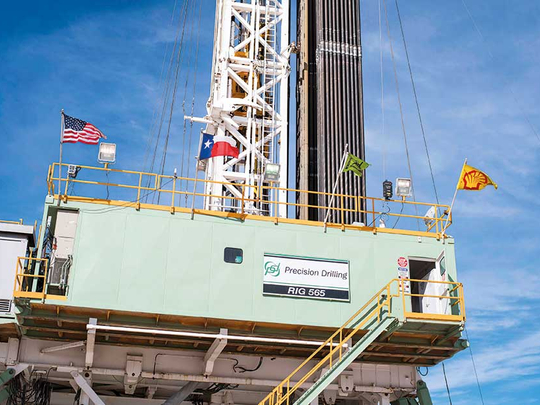
London: Royal Dutch Shell reported a slew of bad figures across its business, giving investors a first glimpse of just how severely the coronavirus crisis hit Big Oil in the second quarter.
The pandemic left no part of the energy giant's sprawling business unscathed. Oil production slowed, fuel sales fell and shipments of everything from liquefied natural gas to petrochemicals suffered.
The dire second quarter also threatened to have a lasting legacy, as reductions in long-term price forecasts will force writedowns of $15 billion to $22 billion to assets all over the world.
No surprises here
The drop in demand comes as little surprise. Oil majors' earnings took a beating in the first quarter, and the companies warned that things would only get worse as the full impact of the pandemic started to be felt in March. Despite a recent rebound in consumption in some of the worst-hit countries, resurgent waves of the virus show the recovery remains fragile.
Oil-product sales volumes will be 3.5 million to 4.5 million barrels a day in the second quarter, down from 6.6 million a year earlier, driven by a "significant drop" in demand because of the pandemic, the oil major said in a statement ahead of quarterly results on July 30.
Shell said it has revised its mid- and long-term pricing and refining margin outlook, and expects gearing - a measure of debt levels - to increase by as much as 3 per cent due to the impairment charges.
Strain of vulnerability
The coronavirus has exposed the vulnerability of some of the world's biggest oil and gas companies, but also given them the opportunity to make investors swallow some unpleasant remedies. Since the pandemic started, Shell and BP have made drastic changes to their businesses, from multi-billion dollar writedowns to big cuts to dividends and jobs.
They explained these moves as responses to the dual threats of the lockdown-induced oil slump and the growing pressure to cut carbon emissions. BP has said oil and gas prices will be lower than expected in the coming decades as the virus hurts long-term demand and accelerates the shift to cleaner energy.
Shell CEO Ben van Beurden in April cut the company's dividend for the first time since the Second World War. In May, the Anglo-Dutch major said it would be well-placed to boost shareholder payouts again once the oil market recovers.








